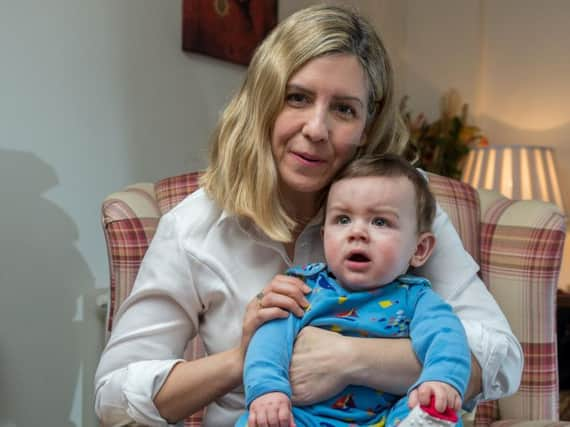Yorkshire Brexiteer Andrea Jenkyns quits Government to ensure UK does not end up 'half in, half out' of EU


Tory Andrea Jenkyns, who represents Morley and Outwood, resigned from her role as parliamentary private secretary (PPS) at the Ministry of Housing, Communities and Local Government to argue for Britain to leave the EU customs union, amid Brexiteer fears that Theresa May is preparing to water down her negotiating "red lines".
It is not the kind of high-profile resignation that is likely to significantly destablise the Government but it will nevertheless put pressure on the Prime Minister at a time when her Cabinet is split on what kind of customs arrangement to seek when the UK quits the EU in March 2019.
Advertisement
Hide AdAdvertisement
Hide AdMs Jenkyns, who sits on the Commons Brexit Committee as one of only seven Leavers out of 21 members, said she wanted devote more time to "doing all I can do to correct this imbalance and be a robust voice for the benefits of Brexit".
As the committee said the UK may be forced to stay in the customs union beyond 2020, she hit out at MPs who are "committed to upsetting the democratic decision of the British people".
And she bemonaed the fact that Brexiteers are "overwhelmingly outnumbered" in the House of Commons, with Tory Remainer rebels threatening to join Labour in an imminent crunch vote to try and force the Government to remain in the customs union .
Advertisement
Hide AdAdvertisement
Hide AdMs Jenkyns, who nicknamed her son "Brexit Clifford" because he was born the day Article 50 was triggered in Parliament, said the UK's exit from the EU "means a huge amount to me" as she ousted Labour heavyweight Ed Balls at the 2015 general election promising to back for an in/out referendum.
Writing on her website, she went on: "In the 2017 general election, I was the only local candidate who voted and supported Brexit and my constituents decided to return me as their local MP.
"I owe my constituents and the 17.4m people who decided to leave the EU that their voices are heard in committee and in Parliament.
"The Prime Minister has my full support in delivering the Brexit that she promised the British people.
Advertisement
Hide AdAdvertisement
Hide Ad"I am glad that the Prime Minister shares my vision of a truly global Britain which is able to strike trade agreements with other countries.
"We want to see a new relationship with Europe, with a new model not enjoyed by other countries - nothing that leaves us half-in, half-out. And in order to achieve this, we need to leave the customs union."
Meanwhile, Downing Street dismissed reports it could partially extend the Brexit transition period so Britain remained in some form of customs union with the EU until 2023, in order to create time for new arrangements to be put in place.
Advertisement
Hide AdAdvertisement
Hide AdMrs May's official spokesman said: "We are obviously working on various positions, including our future customs relationship, and our intention is that we will be ready and we will end the implementation period as agreed in December 2020."
It came after HM Revenue and Customs chief Jon Thompson warned that businesses could be left up to £20 billion worse off if the customs plan favoured by Brexiteers is implemented.
The so-called "max fac" plan to use modern technology to solve the Irish border question would leave firms facing huge charges for customs declarations and for EU "rules of origin", he said.
Advertisement
Hide AdAdvertisement
Hide AdIn contrast, the second option - the new customs partnership (NCP) believed to be favoured by the Prime Minister - would cost a maximum of £3.4 billion and may end up having "a net cost of zero or less".
But neither model is expected to be ready when the proposed transition period expires at the end of 2020.